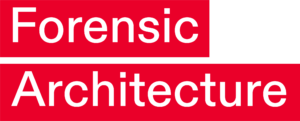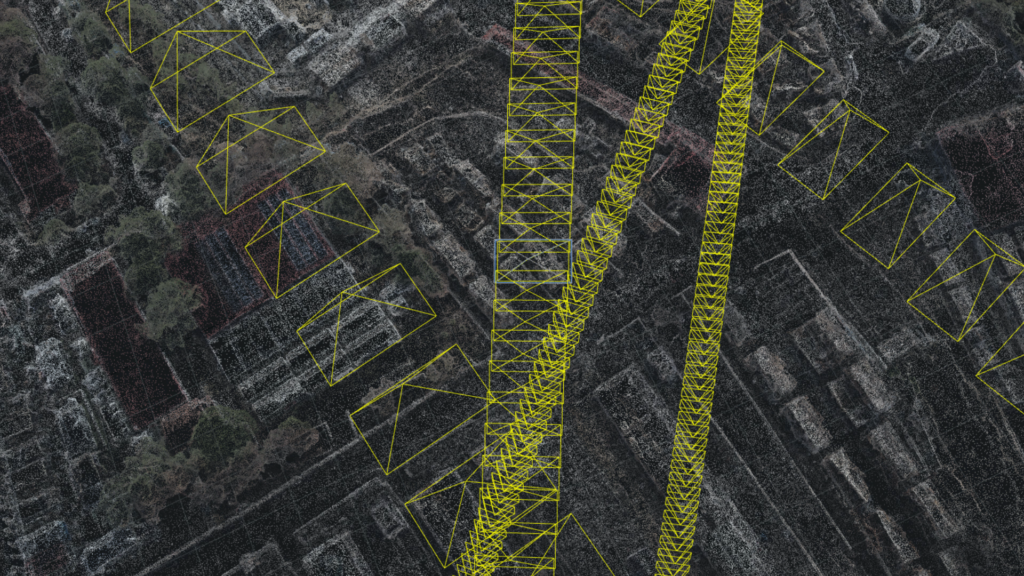
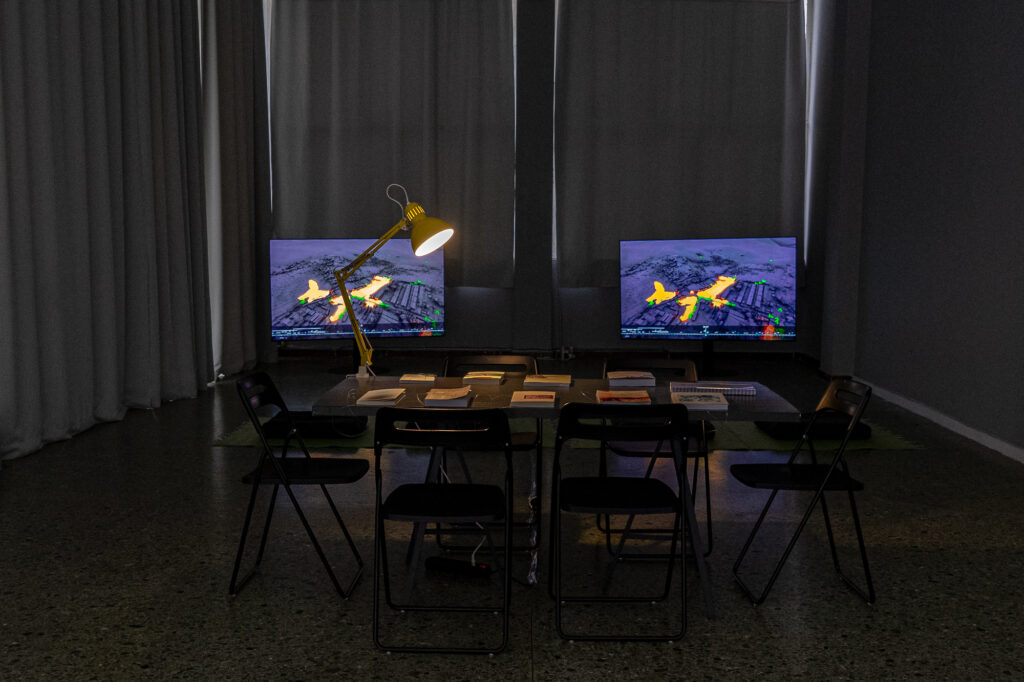
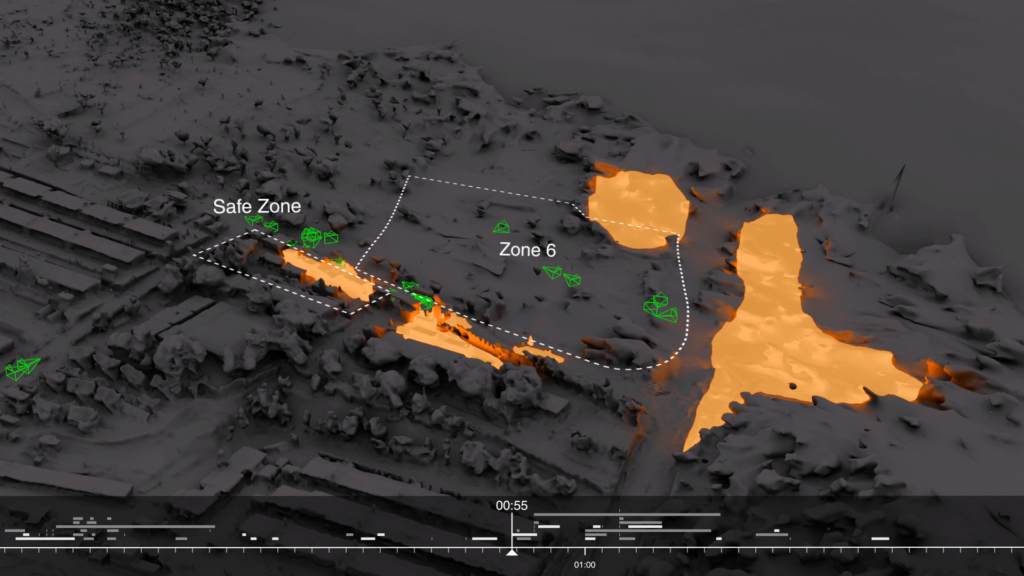
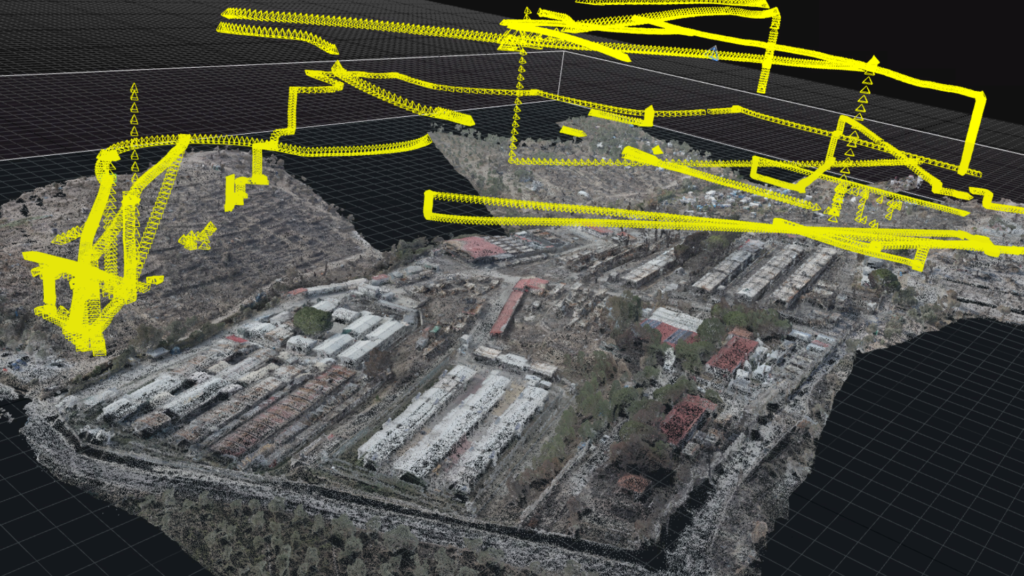
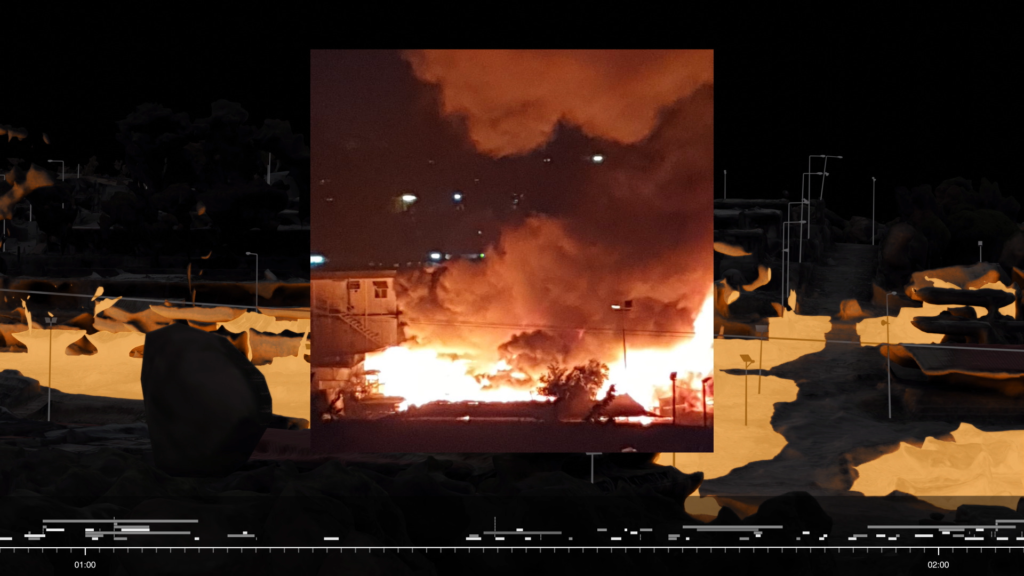
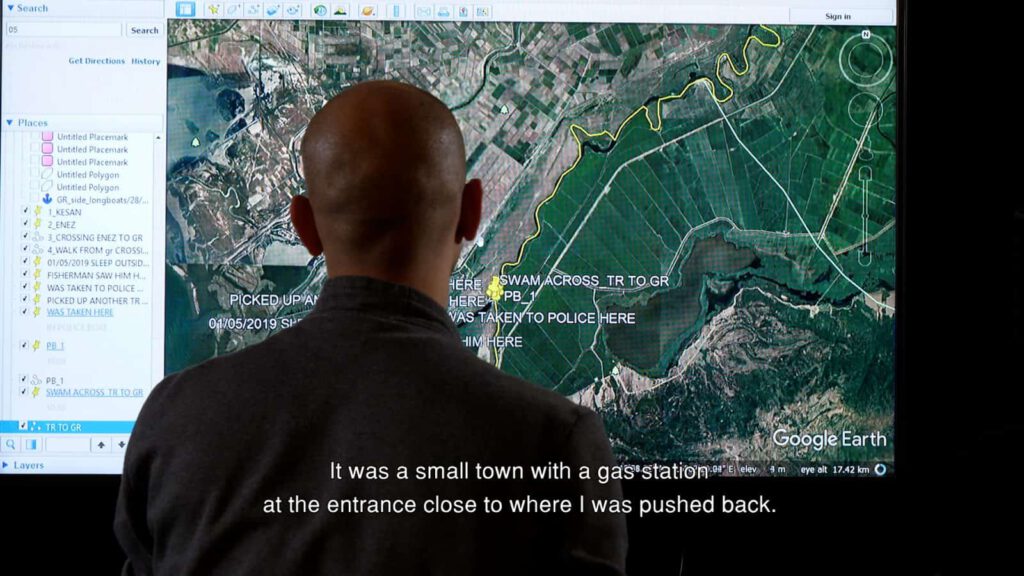
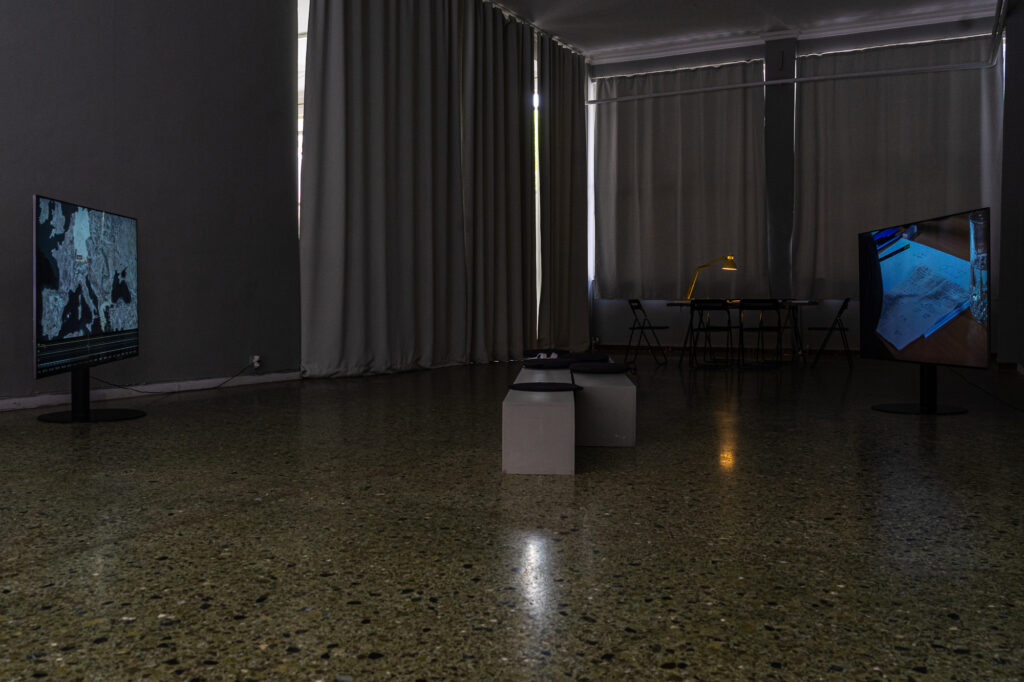
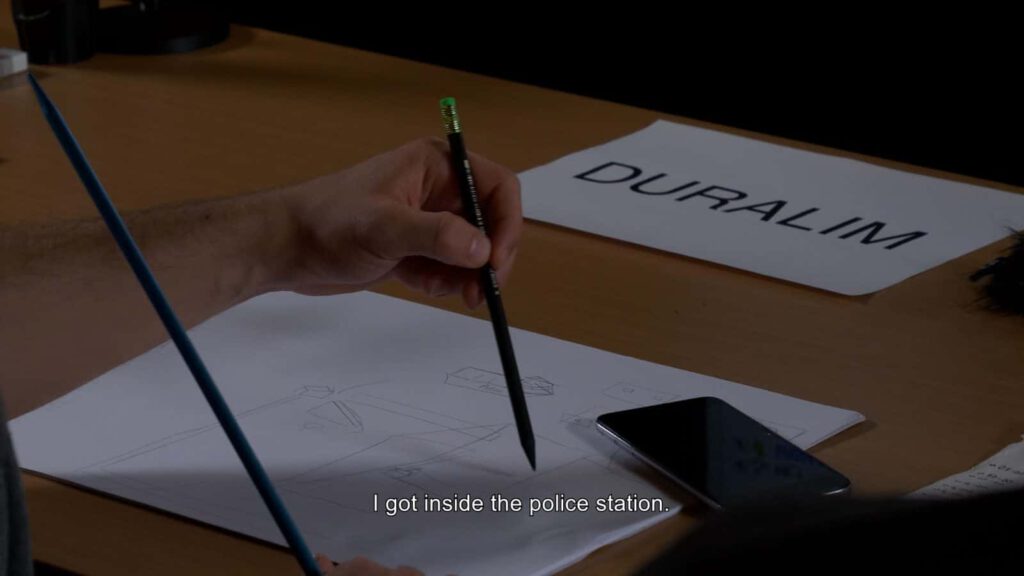
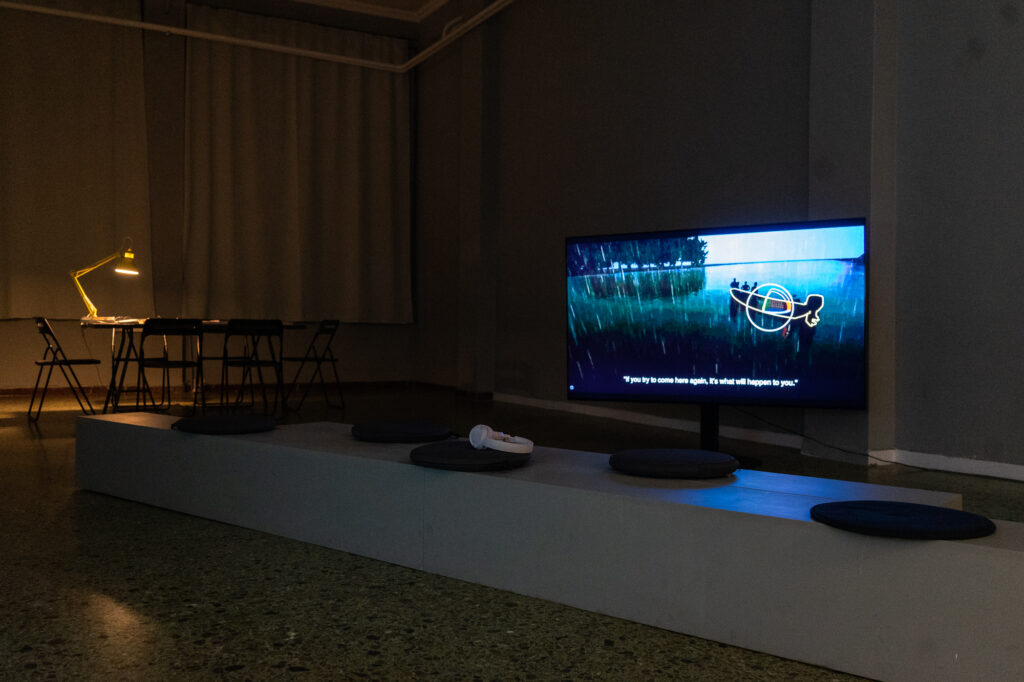
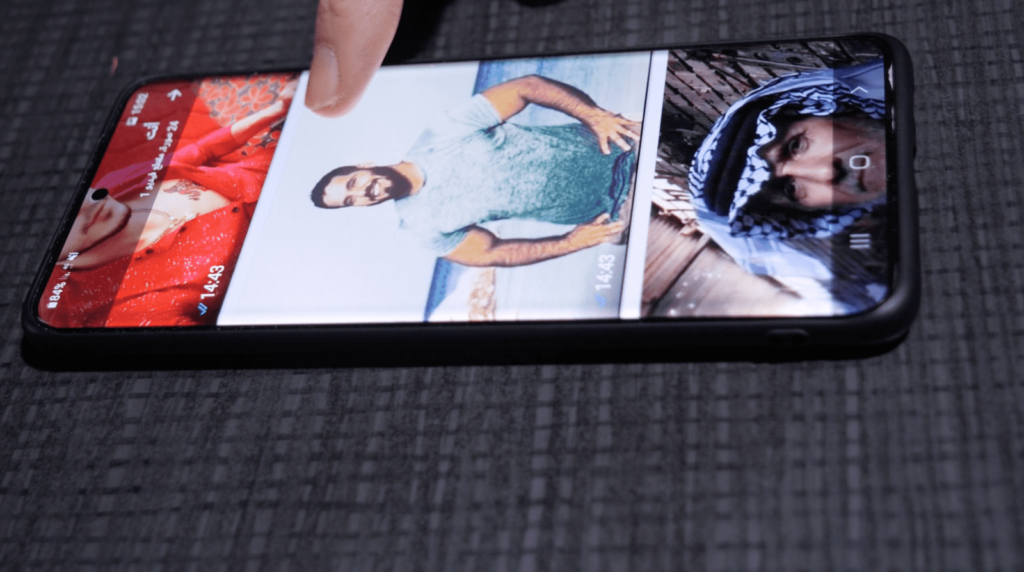
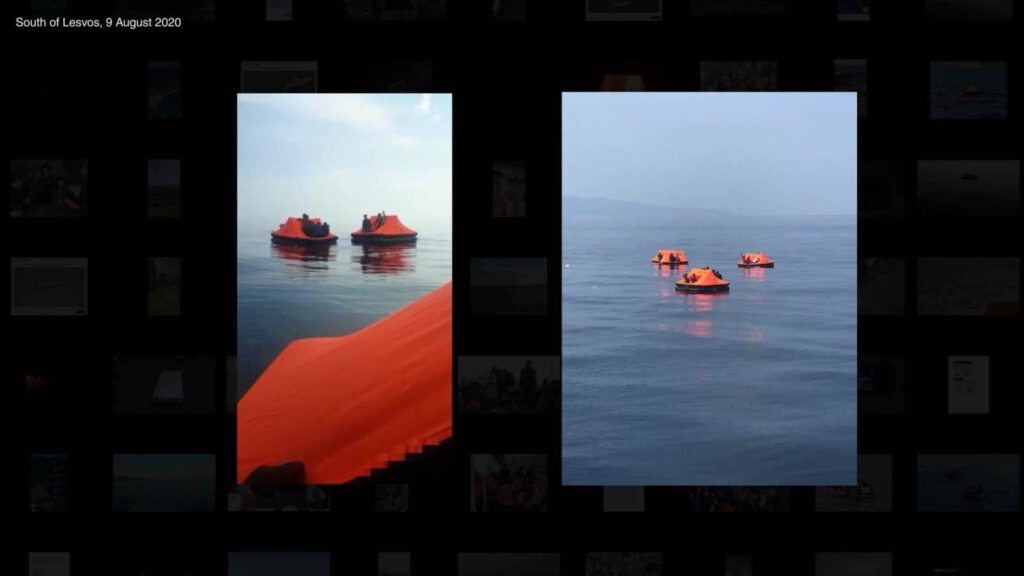
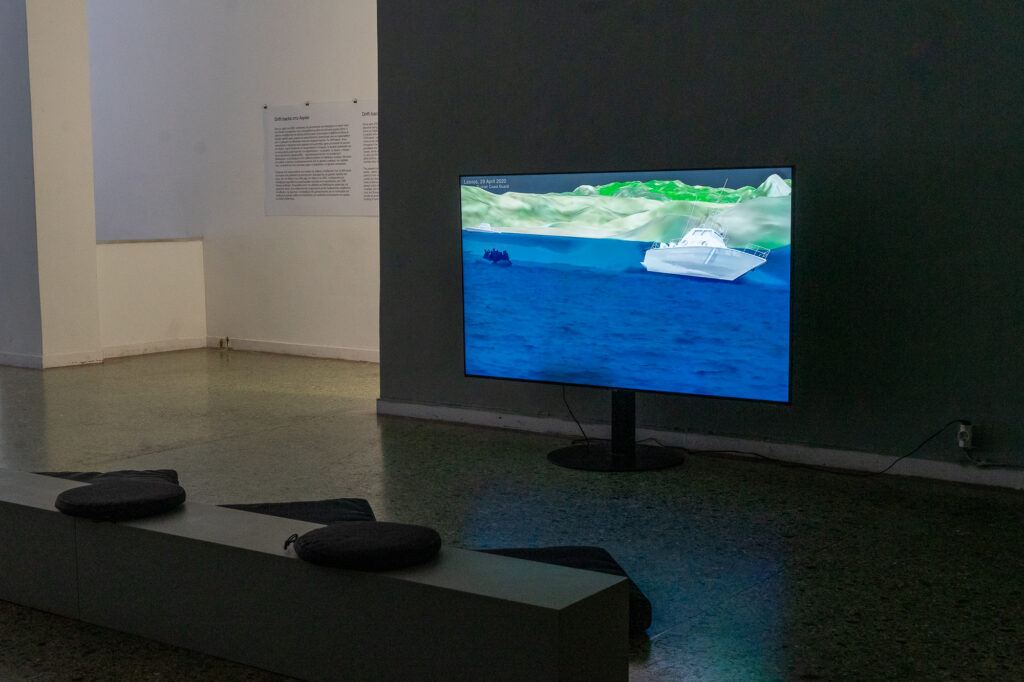
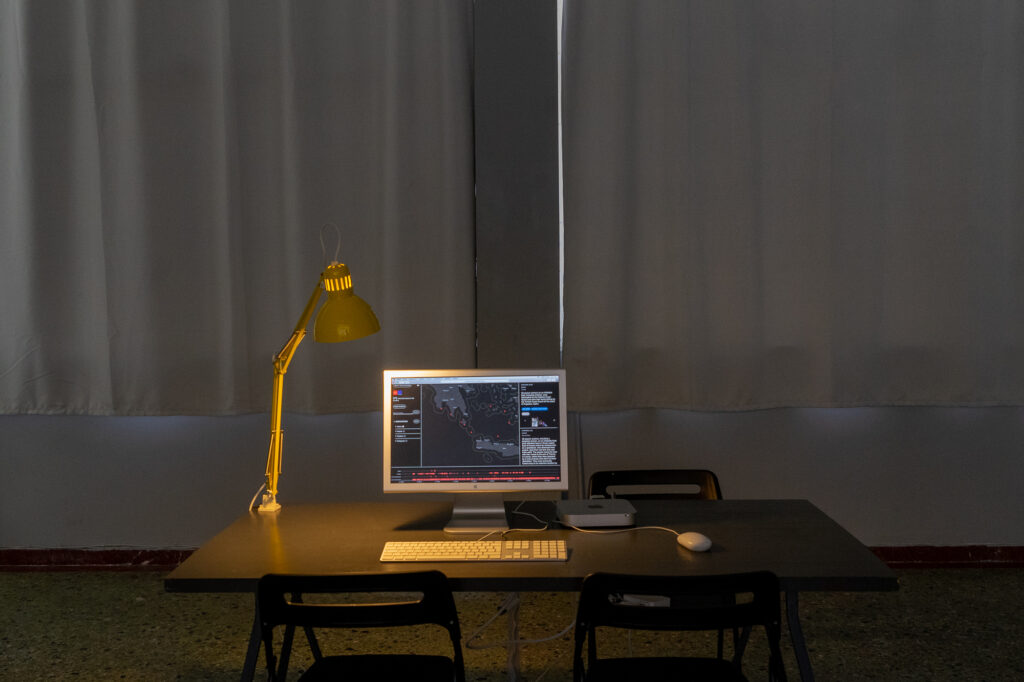
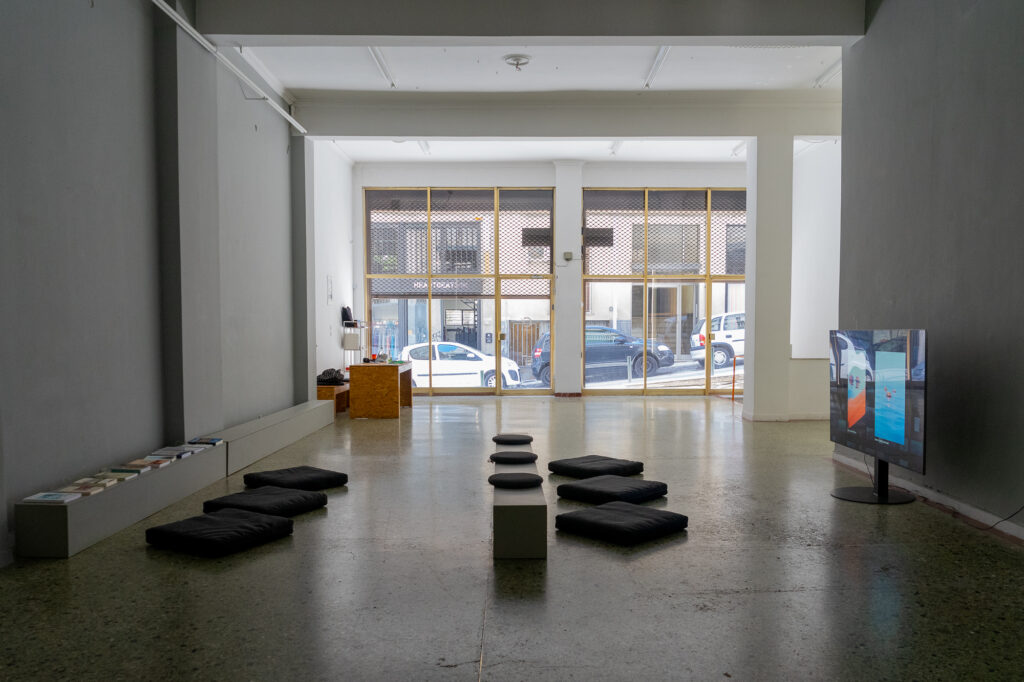














02 March—10 June 2023
Solo show
Can the art institution become a care-taker of truth? Continuing our work through the research platform The Bureau of Care, that examined the ethics and politics of care and how they can inform cultural practice, State of Concept is looking into the way two crises unfolding in tandem these last years are presented in the mainstream: the climate and what became known as the refugee crisis. We will be investigating how they are both affected by new technologies of surveillance, developed within and outside of Europe. Particularly when this last decade we observe that data, information and manipulation play a substantial part in major political changes and interventions.
The two year-long project will investigate the relation between social and environmental justice, and how they are shaped by surveillance technology, especially in developing economies like Greece and other countries. The project arrives as a response to what we see as an emergency: the corrosion of truth and the major discrepancies of states: while fake news has a long history, today the bio-political methods of power, via big data and surveillance technology, manipulate knowledge production and the understanding of reality in ways and speeds before inconceivable. This manipulation is most often related to both the fabrication of alternative truths for both environmental catastrophe and the refugee crisis, many times built through a weaponisation of nature- presented as the culprit instead of state necropolitics or climate change denial.
In many countries around the world, Greece included, democratic checks and balances are increasingly absent, due to a lack of understanding of technology by bureaucrats, but also due to a rigged judicial system that does not act when it comes to major breeches of individual citizen (and migrant and refugee) rights. In some cases, the judicial system is instrumentalised by the state to criminalize those that speak truth to power. In Greece, it persecutes activists in the fields of environmentalism and human rights, and in contrast protects through inactivity, those that pollute, extract, violate and survey.
The current wire-tapping scandal involving various EU countries, among them Greece, where dozens activists and journalists were under surveillance via hacking spyware Predator, is an example of how surveillance technology is used against those that aim to safeguard truth: in the case of Greece activists of civic society and journalists. The scandal prompts us to ask:
What can an art institution do, when it claims to care? What should its role be, when the public sphere is shaped by racist discourse, fake news and alternative facts, poisoning our reality and jeopardizing our future? In an age of mistrust, surveillance and disinformation, how do you gain back people’s attention to the multiple crises we face? State of Concept is aiming to become a vessel of hard facts and precarious testimonies, in a sea of alternative truths. How can we “re-invent life through a hopeful futurity”, in the words of T.J. Demos in order to avoid the possibility of de-futuring all life?
The two year-long program “Truth will not take Care of itself”, discusses the current questions that arise from the relationship between social and environmental justice inspired by the sociopolitical problematics that arise in Greece today and the responses of civic society to them. We are proposing the institution as a place where misinformation and right-wing propaganda can be contested, through the presentation of informed data and facts via people’s forensics. The program will unfold in two phases, with the first to be launched in March 2023.
State of Concept since 2021, invites curators, artists and cultural collectives to curate a program: this year we are honored to be working for the second time with Forensic Architecture (FA) and its Berlin-based sister agency Forensis.
Part 1
The Fire in Moria
In the late hours of 8 September 2020, large fires broke out at the migrant camp of Moria, on the frontier island of Lesvos, Greece, displacing thousands of people and reducing to ashes what had until then been the epicentre of the EU’s carceral archipelago. Only a few days after the fire, the police arrested six young asylum seekers (known as ‘the Moria 6’), five of them minors, and accused them of arson. The ‘Moria 6’ were convicted in two separate trials which were widely heralded as a ‘parody of justice’, with five of the 6 being convicted on the testimony of a single witness, who never appeared in court.
In the context of the upcoming appeal trial in Lesvos, FA/Forensis were commissioned by the lawyers representing four of the defendants to reconstruct the fire and cross-examine the key witness statement. Drawing from hours of footage from that night, our investigation, launched in the press conference, severe inconsistencies are revealed in the witness testimony casting further doubt over the evidence upon which the judgement of the young asylum seekers was based. The investigation also situates the last fire within the overcrowded camp’s history of hundreds of outbreaks, demonstrating that it constitutes instead a foreseeable result of the precarious and unsafe living conditions manufactured and maintained for years by EU and Greek authorities.
Part 2
Pushbacks across the Evros/Meriç river – The cases of Fady and Kuzey
For years, migrants and refugees crossing the Evros/Meriç river border into Greece have testified to being detained, beaten, and ‘pushed back’ by unidentified masked men across the river to Turkey. Greek authorities strenuously denounce these reports as ‘fake news’, and refuse to investigate. These denials are enabled by the complex, militarised geography of the region. A ‘buffer zone’ skirts the Greek banks of the river, prohibiting access to civilians, humanitarian workers, and researchers. Detention sites and border guard stations are often located at the edge of this zone, keeping those who cross the river out of sight, and without access to legal support. Those detained describe having their phones, documents, and possessions confiscated and often thrown into the river, suggesting an operation that is carefully designed to cover its own tracks. Overall, the river’s natural processes have been incorporated into a wider ecosystem of border defence, and weaponised to deter those who attempt to cross and to obscure the violence perpetrated against them.
The two investigations presented here penetrate that veil of obscurity, demonstrating that ‘pushbacks’ at Evros/Meriç are methodical and widespread. Employing an interview technique called ‘situated testimony’ which uses 3D models of the scenes and environments in which violent events occurred to aid in the process of recollection, Forensic Architecture reconstruct the cases of Fady; a Syrian man recognized as a refugee in Germany but arrested in Greece and summarily expelled across the river, and Kuzey, a Turkish man who was detained, tortured and ‘pushed back’ across the river five times in the space of nine days.
Part 3
Drift-backs in the Aegean Sea
Since early 2020, migrants and refugees crossing the Aegean Sea into Greece describe being intercepted within Greek territorial waters, or arrested after they arrive on Greek shores, beaten, stripped of their possessions, and then forcefully loaded onto life rafts with no engine and left to drift back to the Turkish coast. ‘Drift-backs’, as this illegal practice of abandoning asylum seekers at sea has come to be called by some, have become routine occurrences throughout the Aegean, often resulting in injuries and drownings. Here, natural processes and geographical features of the Aegean archipelago – currents, waves, winds and uninhabited rocks – are mobilized by the Hellenic Coast Guard to carry out the expulsion, distancing the perpetrators from the impact of their lethal actions, and shielding them from accountability. To this day the Greek authorities deny that ‘drift-backs’ take place in the Aegean.
The research presented here, however, shows that this is not a plausible deniability – rather, what emerges is a systematic, calculated practice. Spanning a period of two years, from March 2020, when the first drift-back case was reported and documented, to March 2022, our interactive cartographic platform hosts evidence of over 1000 such cases. Evidencing the systematic and widespread nature of the practice and demonstrating relations between incidents, localities, and actors, the platform is already supporting ongoing legal action in local and European courts, independent monitoring, reporting, and advocacy, as well as growing demands for accountability and international calls for the defunding of national border guards and FRONTEX.
*The third and final part, presents Forensic Architecture / Forensis’ research on the “drift-backs” in the Aegean Sea and is accompanied by a public program that frames the research, highlighting the role of technology in the continuation of the political violence promoted by the European Union, and how this role is played out in Greece through the surveillance scandal.
Public Program
3rd Part
9th of May – 10th of June: third and last presentation of Forensic Architecture / Forensis investigation into ‘drift-backs’ in the Aegean Sea.
9th of May, 18:30: The data frontier. Investigating mass surveillance in the EU, a talk with Apostolis Fotiadis, Luděk Stavinoha & Giacomo Zandonini. The talk will be moderated by Stefanos Levidis and iLiana Fokianaki and will be conducted in English. Available on https://youtu.be/_WEg4_xit6w
16th of May, 18:30: Borders, surveillance and the Refugee Crisis with Stefanos Levidis, Stavros Malichoudis & Eliza Triantafyllou with an intervention from Algorithm Watch Berlin. The talk will be moderated by Danai Maragoudaki and will be conducted in Greek, without translation in English. Available on https://youtu.be/eHZerJeW9hA
***To reserve your place or for more info please email us at: [email protected]
2nd Part
12th of April – 6th of May: second presentation of Forensic Architecture / Forensis investigations on Evros, “Pushbacks across the Evros / Meriç river – The cases of Fady and Kuzey”.
1st Part
2nd of March – 8th of April: first investigation presented showcasing the facts for the fire in Moria, the program was inaugurated. Public Program: Keynote Lecture T.J. Demos & Press Conference FA.
**Due to the nature of the project, the activities and participants will be announced closer to the date of the events.
Image Credits:
The Moria Fires, Forensic Architecture/Forensis, 2023.
Witness mapping his trajectory (Forensic Architecture).
Sketches produced during the ‘situated testimony’ interviews (Forensic Architecture).
